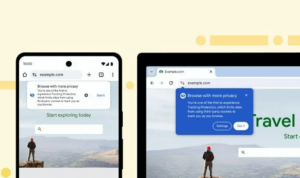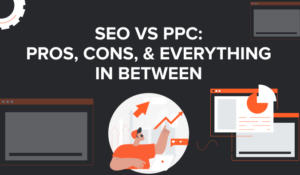 “By automating SEO, you use tools and software to do the repetitive optimization tasks for you. These tools don’t eliminate the need for a person to be involved, but they can do the heavy lifting. These tasks often contain data-heavy and time-consuming work. “
“By automating SEO, you use tools and software to do the repetitive optimization tasks for you. These tools don’t eliminate the need for a person to be involved, but they can do the heavy lifting. These tasks often contain data-heavy and time-consuming work. “
Click here to continue reading.
 We often get the question of how long an online text should be. As this often depends on different factors, it’s difficult to give just one answer. But looking from an SEO and user-oriented perspective, there is a rule of thumb you can follow. We advise writing more than 300 words for posts or pages, while product descriptions should be over 200 words. Why? Because a higher word count helps Google understand what your text is about. It also gives you the room to give enough information on the topic being discussed, which is helpful for your site visitors. However, we don’t advise adding more content for the sake of it. Quality and readability always come first!
We often get the question of how long an online text should be. As this often depends on different factors, it’s difficult to give just one answer. But looking from an SEO and user-oriented perspective, there is a rule of thumb you can follow. We advise writing more than 300 words for posts or pages, while product descriptions should be over 200 words. Why? Because a higher word count helps Google understand what your text is about. It also gives you the room to give enough information on the topic being discussed, which is helpful for your site visitors. However, we don’t advise adding more content for the sake of it. Quality and readability always come first! The goal of any search engine is to give the searcher the “best” answer quickly and accurately. In a perfect world, the first listing on the search results would be exactly what you are looking for. Repeat searches build income for the search engine.
The goal of any search engine is to give the searcher the “best” answer quickly and accurately. In a perfect world, the first listing on the search results would be exactly what you are looking for. Repeat searches build income for the search engine. In the fast-paced digital marketing domain, search engine optimization (SEO) and social media represent two fundamental elements that shape a brand’s online identity. Each plays a pivotal role, yet when they converge into an effective seo strategy, the combined effect amplifies the brand’s visibility and influence. This harmonious alignment between SEO and social media paves the way for a more pronounced and compelling online brand identity.
In the fast-paced digital marketing domain, search engine optimization (SEO) and social media represent two fundamental elements that shape a brand’s online identity. Each plays a pivotal role, yet when they converge into an effective seo strategy, the combined effect amplifies the brand’s visibility and influence. This harmonious alignment between SEO and social media paves the way for a more pronounced and compelling online brand identity. There are two kinds of people: Those who chase after inbox zero and those who have 45,000 unread emails.
There are two kinds of people: Those who chase after inbox zero and those who have 45,000 unread emails. “Get ready for fluctuations in your Google Search traffic, with Google today announcing
“Get ready for fluctuations in your Google Search traffic, with Google today announcing  Google’s moving to the next stage of its program to
Google’s moving to the next stage of its program to  In an ever-changing digital landscape, businesses have to continually stay updated on the latest trends in search engine optimization (SEO) to remain competitive. In 2023, one of the top priorities will be improving core web vitals and enhancing user experience on websites. Google has increasingly emphasized the importance of website performance and user satisfaction in its ranking algorithm, as evidenced by the introduction of Core Web Vitals metrics such as Largest Contentful Paint (LCP), First Input Delay (FID), and Cumulative Layout Shift (CLS).
In an ever-changing digital landscape, businesses have to continually stay updated on the latest trends in search engine optimization (SEO) to remain competitive. In 2023, one of the top priorities will be improving core web vitals and enhancing user experience on websites. Google has increasingly emphasized the importance of website performance and user satisfaction in its ranking algorithm, as evidenced by the introduction of Core Web Vitals metrics such as Largest Contentful Paint (LCP), First Input Delay (FID), and Cumulative Layout Shift (CLS). ” ‘Which is better, SEO vs PPC?’
” ‘Which is better, SEO vs PPC?’